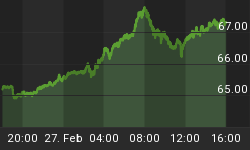Recently there have been some encouraging signs that Congress is finally willing to admit what should have been evident two years ago. Even after a $150 billion bailout, Fannie Mae and Freddie Mac are still bankrupt and should be abolished. Indeed Rep. Barney Frank, a longtime champion of Fannie and Freddie has made a few statements alluding to this and I have signed on to a letter asking him to clarify his remarks and hold hearings on this topic. There seems to be a growing consensus in favor of abolishing Fannie and Freddie. This is the good news.
The bad news is that instead of simply returning to the free market, Fannie and Freddie will probably be replaced with something equally damaging, and at this point we can only guess what that will be. One possibility is that instead of these two giant Government Sponsored Enterprises (GSEs) the government will deputize thousands of smaller banks to do the same thing - that is to securitize mortgages with taxpayer guarantees to encourage lending that otherwise would not happen. In other words, there will be a myriad of smaller Fannies and Freddies, and government involvement will reach even deeper into the financial sector.
Fannie and Freddie, and thus the taxpayer, has an alarming $5 trillion exposure to the mortgage market. To some, spreading out this risk might seem tempting, and a smart thing to do. But the fact remains that if a bank expects to lose money on a loan, so will the taxpayers. Playing around with structures and definitions will still not deal with the root problem - government meddling in the housing market, playing fast and loose with our tax dollars, and central planning by the Federal Reserve.
Banks have complex risk assessment strategies in place that help them forecast if a particular loan will make them any money or not. If they expect to make money, they will approve the loan. If they have doubts, sometimes they will ask for a co-signer to improve their odds. You might do this willingly for a friend or a relative if you didn't mind losing some money on their behalf, but current government policies essentially force taxpayers to become cosigners for risky borrowers that are complete strangers, who the banks have already determined to be bad risks. Taxpayers have no choice in the matter because politicians decided a few decades ago that dangling homeownership in front of more people seemed like a good way to garner votes.
That was sold to voters as a compassionate gesture to the poor and beneficial to society as a whole. After all, how could giving more Americans an ownership stake in society be bad? The combined policies of loose credit and government backing increased the demand for housing and drove prices sky high. When the housing market heated up to the breaking point everything came crashing down. Those suddenly facing foreclosure saw the reality of government compassion. Truly, when government offers you a gift, you should eye it with great suspicion.
Another tragedy is that many job seekers are now tethered to their locations because of upside down loan obligations. It takes a lot of effort with their bank and damage to their credit scores to figure out how to get out and move to a place where there are jobs. Will the government now be seeking ways to subsidize renters in some way because of this lack of mobility? Some think so.
My hope is that for the long term stability and health of the economy, the government will extricate itself from the market altogether and let it normalize. My fear is that in its usual misguided efforts at solving one crisis, it will create a thousand others.















